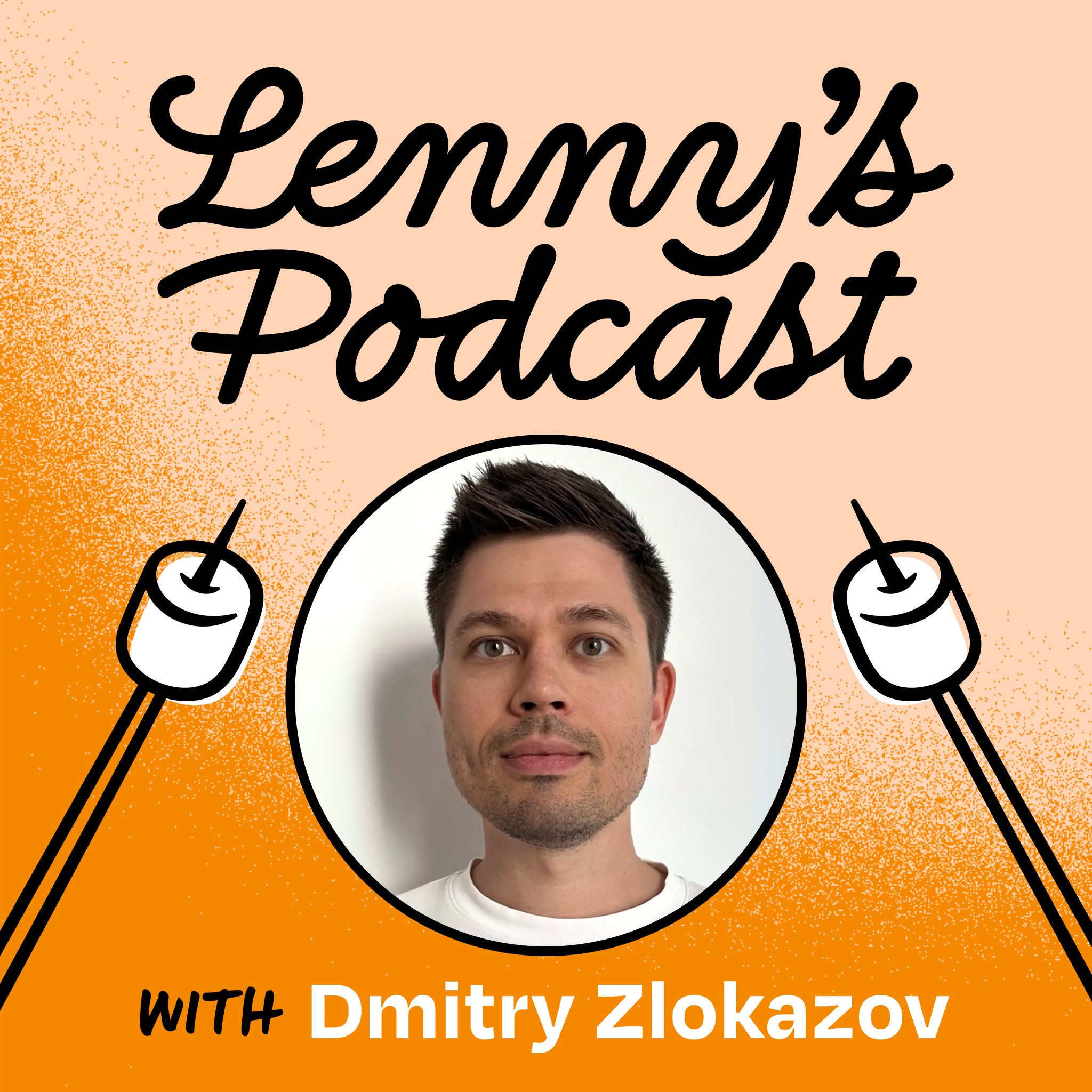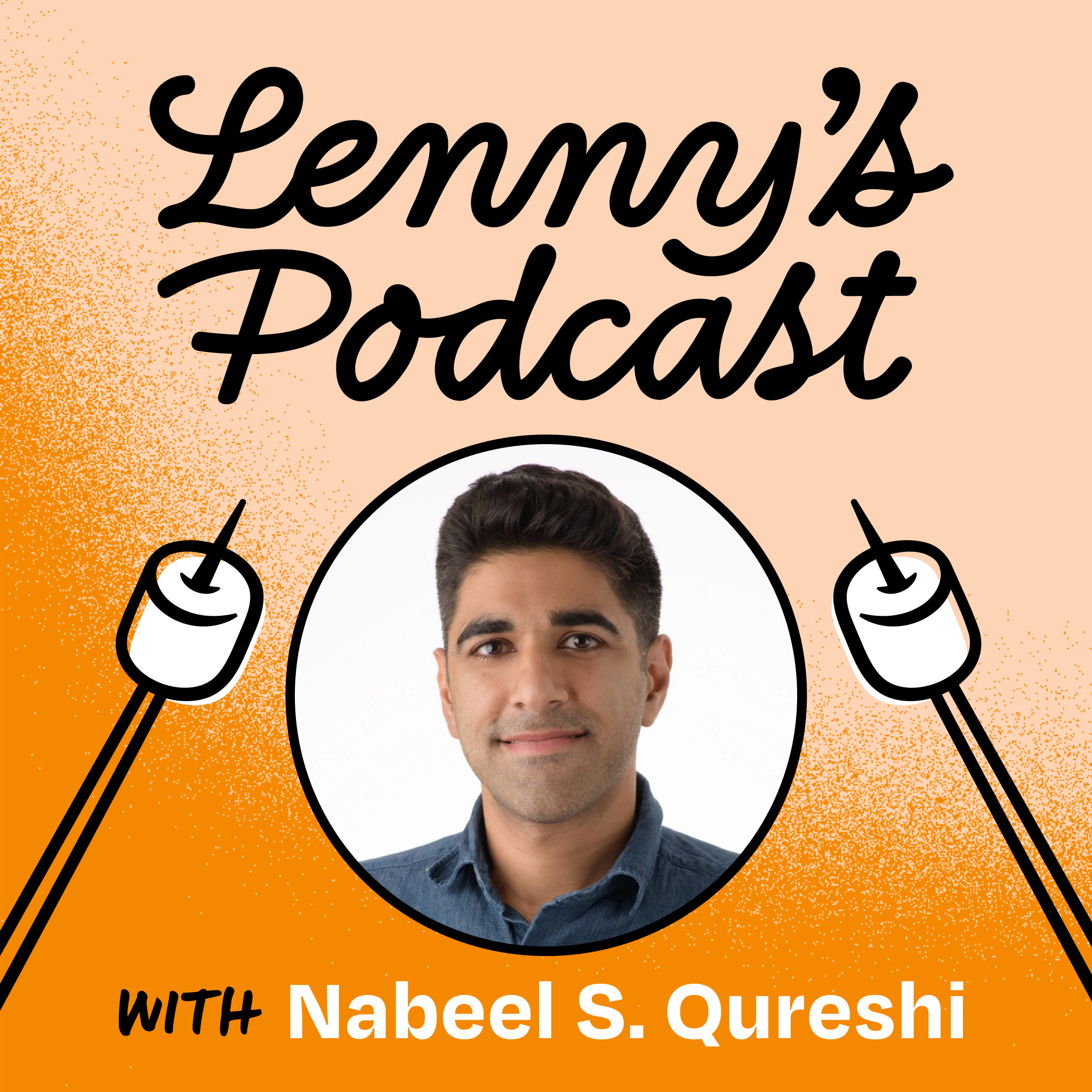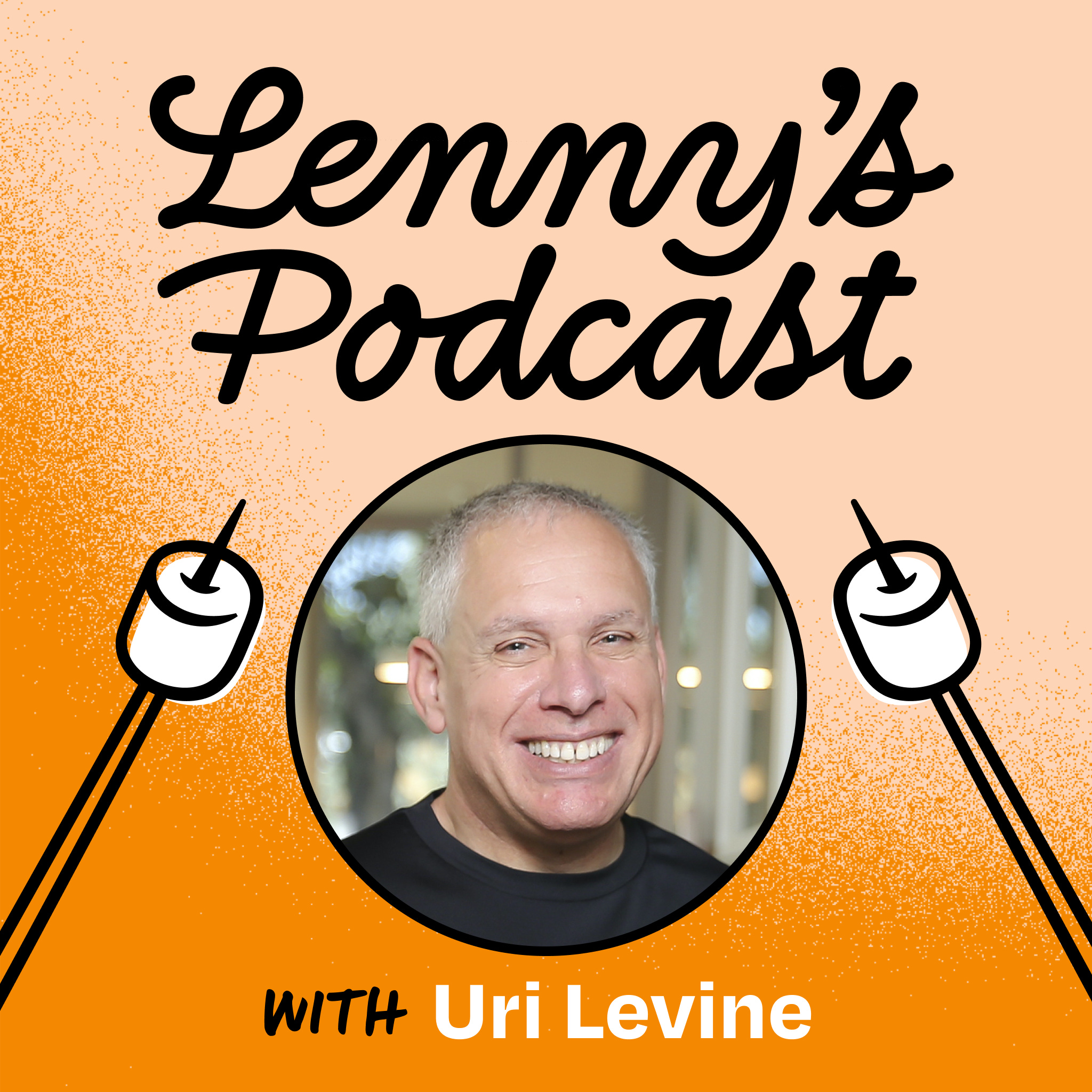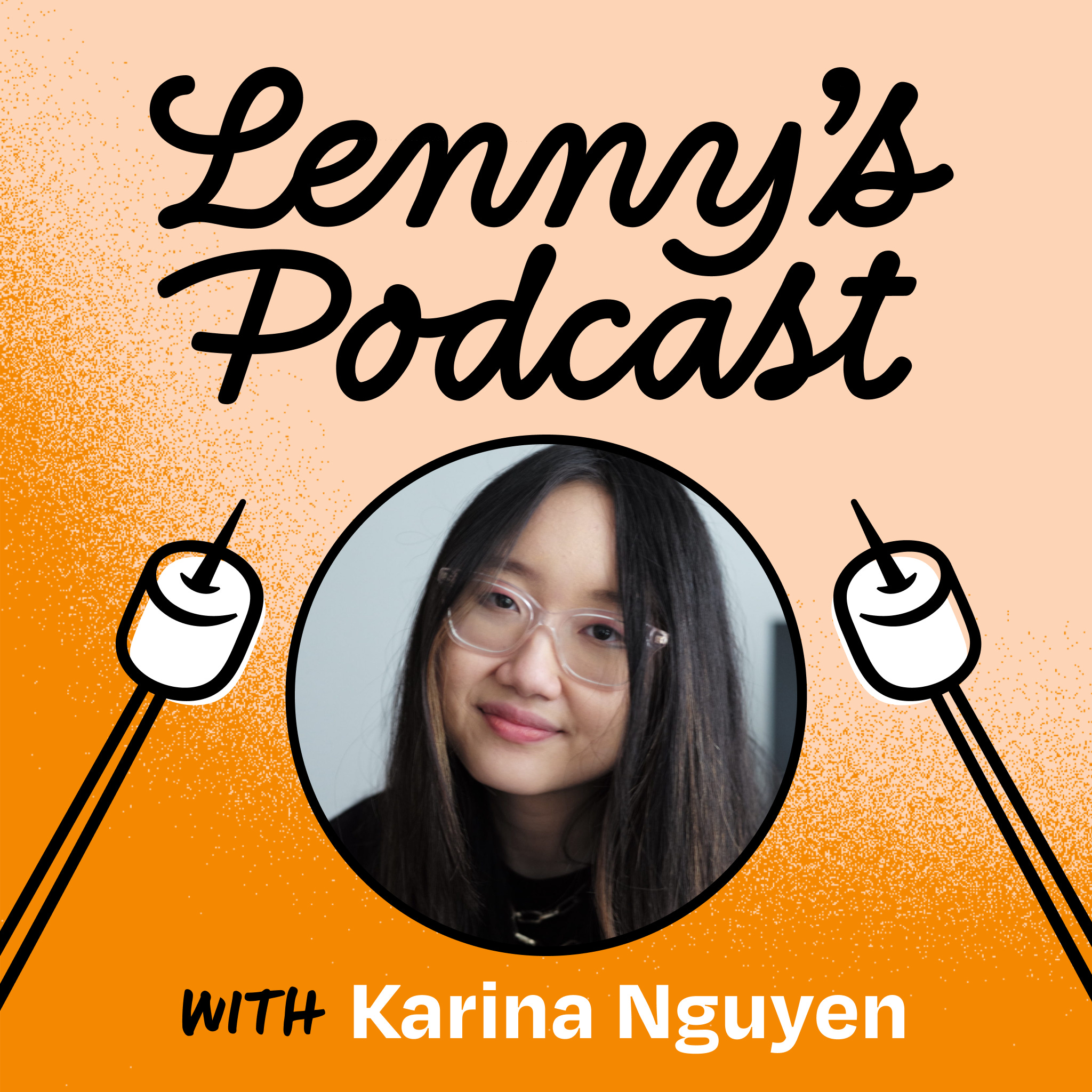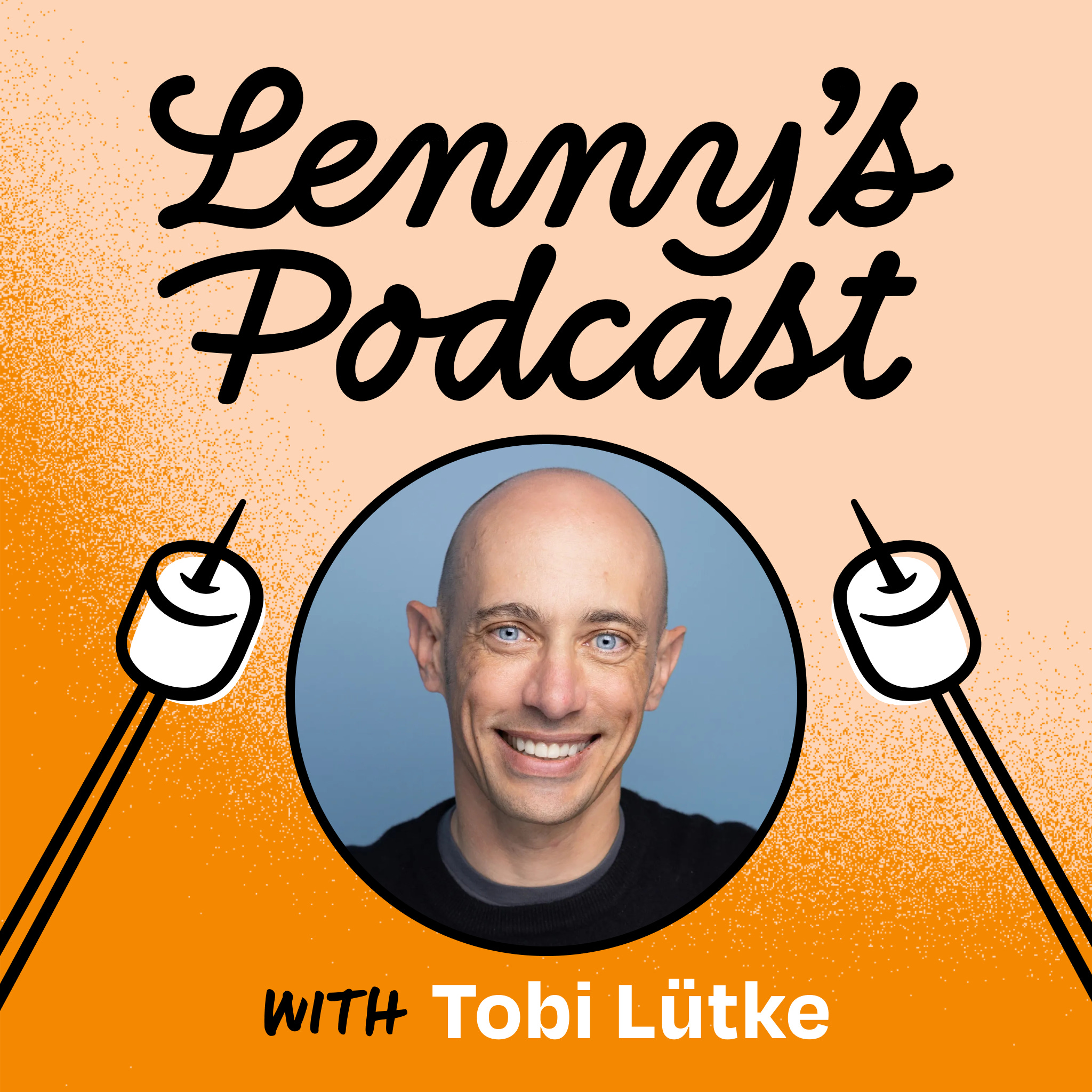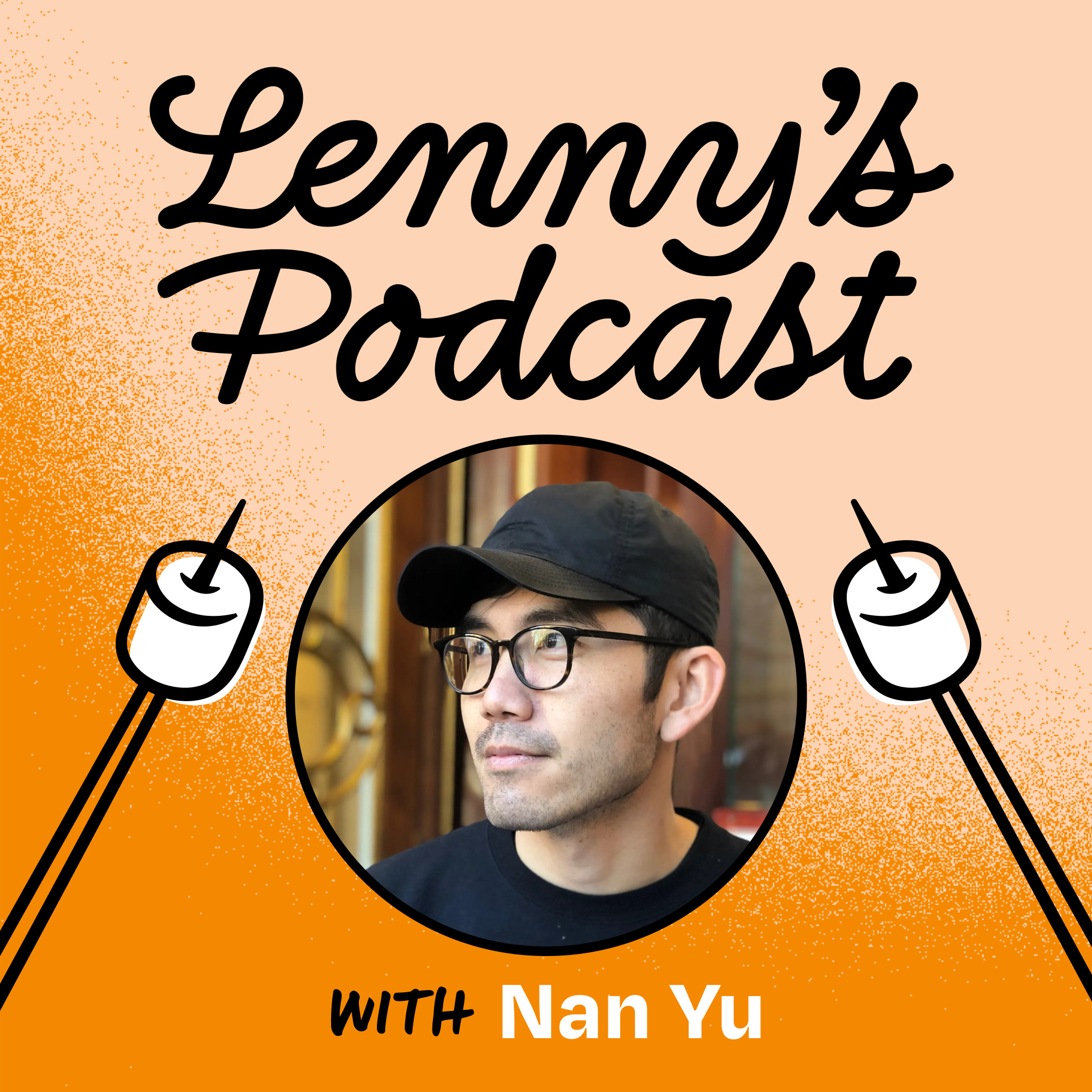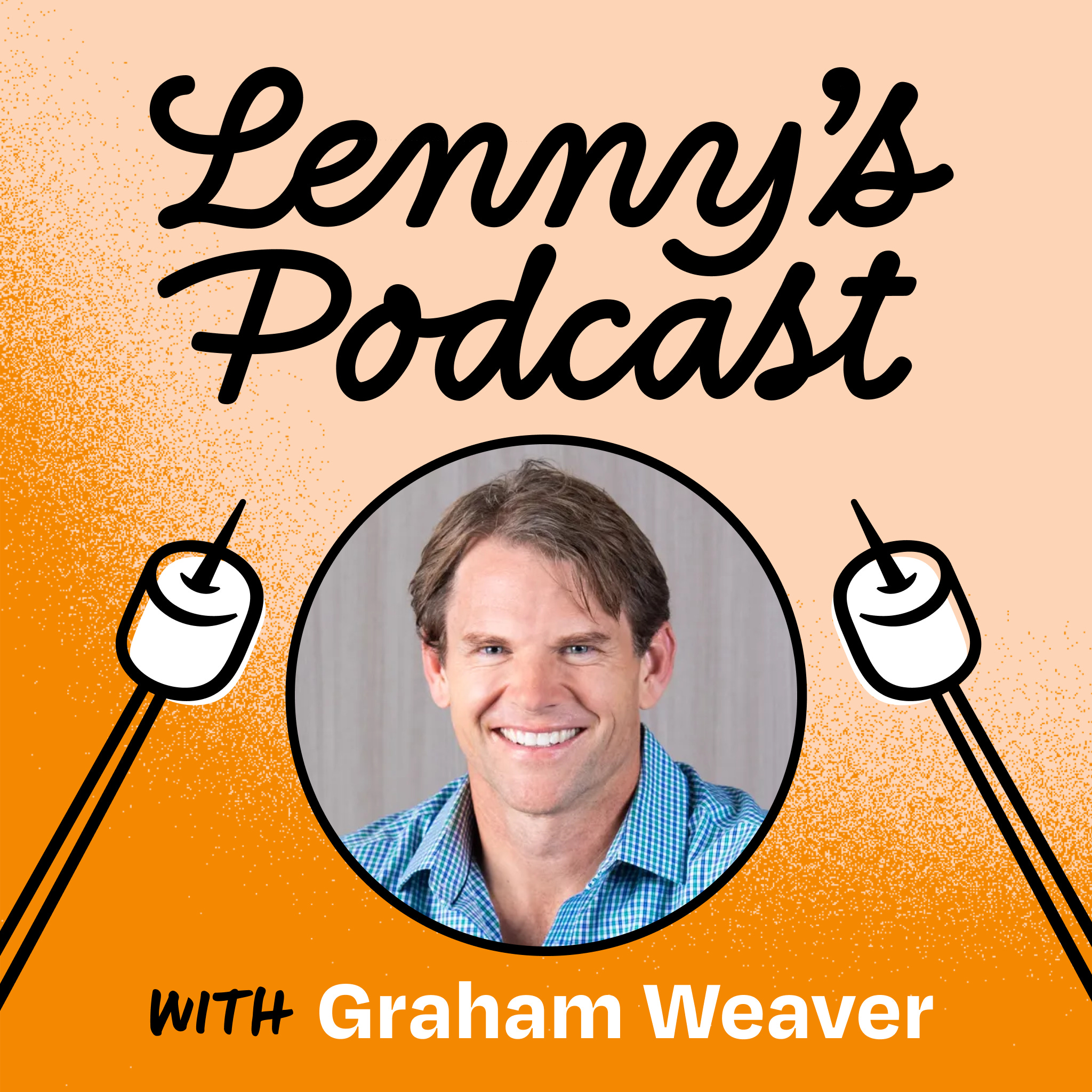
June 2, 2024 • 1hr 3min
Inside Canva: Coaches not managers, giving away your Legos, and running profitably | Cameron Adams (co-founder and CPO)
Lenny's Podcast: Product | Growth | Career

Key Takeaways
- Canva is an incredibly successful business, generating $2.3 billion in ARR, growing 60% year-over-year, and has been profitable for 7 years
- Canva's success stems from being extremely product-focused and obsessed with creating a delightful user experience
- They spent a full year building their MVP before launch to ensure it was polished enough to delight users
- Canva has no traditional managers - instead they use a coaching system where everyone has a coach to help them grow and develop
- They encourage employees to "give away their Legos" - hand off responsibilities so they can take on new challenges as the company scales
- Canva's SEO strategy focused on mapping user jobs-to-be-done to search queries and optimizing the full user journey
- Their freemium model aligns with their mission of democratizing design while also building a viable business
- Canva is integrating AI through building proprietary models, partnering with AI companies, and leveraging their app ecosystem
Introduction
In this episode, Lenny interviews Cameron Adams, co-founder and Chief Product Officer of Canva. Canva is a hugely successful design software company that has reached incredible scale, generating $2.3 billion in annual recurring revenue and growing 60% year-over-year. The conversation covers Canva's product philosophy, team culture, growth strategies, and approach to integrating AI.
Topics Discussed
Canva's Incredible Success (0:00)
Lenny opens by highlighting some impressive stats about Canva's success:
- Canva is bigger than Figma, Miro and Webflow combined in terms of valuation and revenue
- They are generating $2.3 billion in annual recurring revenue
- The company has been profitable for about 7 years
- Canva is growing 60% year-over-year and accelerating
Cameron reflects that while they don't think about these stats day-to-day, there are moments when the team comes together to celebrate milestones that allow them to step back and appreciate what they've built.
Overcoming Challenges (4:50)
While Canva's trajectory looks like non-stop success from the outside, Cameron shares a story of a challenging moment during a funding round:
- A lead investor tried to cut their valuation by 50% at the last minute
- The co-founders had to scramble to find a new lead investor in just a week
- This experience taught them the importance of being financially independent
- "Being profitable means that we never have to [raise money] on someone else's terms. We can always do it on our own terms and in our own time."
Canva's Product-Obsessed Culture (10:01)
Cameron explains how Canva maintains an intense product focus:
- Board meetings focus primarily on product updates and roadmaps rather than financials
- They've attracted investors who understand the importance of product in driving success
- Product is the most important thing to Canva and what will help them stand out long-term
Prioritizing Internal Promotions and Hires (12:02)
Canva has focused heavily on developing internal talent rather than hiring external executives:
- They believe team and culture fit is critical for success
- Internal hires understand Canva's unique processes and communication styles
- External hires sometimes struggle to adapt to Canva's idiosyncratic ways of working
What Makes Canva Unique (13:56)
Cameron highlights some key aspects of Canva's culture and approach:
- Visual thinking is core to how they work - they emphasize mockups and prototypes over just talking about ideas
- They've developed unique processes that can be jarring for outsiders to adapt to
- New hires are encouraged to listen and understand how things work before trying to change processes
The Concept of Giving Away Your Legos (16:31)
Cameron explains Canva's philosophy of "giving away your Legos":
- As the company scales, employees need to hand off responsibilities to take on new challenges
- This allows people to level up their impact as the company grows
- It can be hard to give up things you enjoy, but it's necessary for personal and company growth
- "Finding joy in the other things of building a team, passing on your experience, helping other people do great writing or great product building or great engineering is really what giving away your Lego is about."
Why Canva Has No Managers (21:44)
Cameron describes Canva's unique approach to people management:
- They don't have traditional managers
- Everyone at Canva has a coach who helps them develop skills and grow in their role
- Coaches are typically more senior employees in the same specialty (e.g. product managers coaching other PMs)
- Performance reviews involve 360 feedback from colleagues
Product Management at Canva (24:29)
On Canva's approach to product management:
- They avoided having formal "product manager" roles for the first 6-7 years
- PMs at Canva are "connectors" - linking teams, ideas, data, etc.
- The role involves constant adjustment and reorienting around constraints
- PMs are deeply embedded with teams, not independent like at some companies
Reflections on Working with a Married Couple (27:56)
Cameron shares his experience as the third co-founder alongside a married couple:
- It can be challenging as the couple continues discussing work outside the office
- Transparency and frequent realignment are key to making it work
- He's gotten used to quickly catching up on discussions he may have missed
Why They Spent a Year Building Their MVP Before Launch (30:37)
Cameron explains why Canva took a full year to build their MVP:
- They believed the product experience was critical to driving word-of-mouth growth
- A "crappy" MVP wouldn't have generated the enthusiasm needed for viral adoption
- They did extensive user testing to refine the experience before launch
- "We obviously weren't happy with [the product we launched]. You have to launch something that you're not completely happy with...but you're releasing it knowing that the rough edges are going to be outweighed by the joyful experience."
Advice for Building an MVP (33:49)
Cameron shares advice for founders on building MVPs:
- Work on something you're personally passionate about and want to use yourself
- The product should spark joy and excitement in users, not just be useful
- Early users need to be so delighted they want to tell others about it
- Focus on a specific user segment that is most excited about your product
Canva's Onboarding Transformation (41:23)
Cameron describes how they dramatically improved Canva's onboarding:
- They focused on overcoming the "fear of the blank page"
- The new onboarding walked users through simple steps to quickly create something
- This built confidence and showed users they could be designers
- "The words that we literally got out of user testing were, 'I didn't know I could be a designer.' And that was what we managed to do through several rounds of refinement on the onboarding process."
Canva's SEO Strategy (44:25)
Cameron explains the key elements of Canva's highly successful SEO approach:
- Mapped user jobs-to-be-done to search queries
- Optimized the full user journey from search to product experience
- Focused on delivering a great end-to-end experience, not just SEO tricks
- Internationalization was a key growth driver, opening up huge new markets
The Success of Canva's Freemium Strategy (50:37)
On Canva's approach to freemium:
- Aligned with their mission of democratizing design
- Initially monetized through $1 image/element sales
- Launched subscription offering after 3 years based on user needs
- Subscription revenue quickly overtook a la carte sales
Integrating AI into Canva's Product (54:24)
Cameron outlines Canva's three-pillar approach to AI:
- Build proprietary AI models in areas where they have unique data/insights
- Partner with best-in-class AI companies for commoditized capabilities
- Leverage their app ecosystem to bring in innovative AI tools from developers
He emphasizes that AI needs to be thoughtfully integrated to help users achieve their goals, not just pushed as a flashy feature.
Conclusion
Cameron Adams provides a fascinating look inside Canva's incredible success story. Key themes that emerge are Canva's intense product focus, commitment to delighting users, unique team culture, and thoughtful approach to growth. By staying true to their mission of democratizing design while also building a viable business, Canva has achieved rare levels of both user adoption and financial success. As they continue expanding into enterprise and integrating AI, Canva seems poised for continued growth and impact.
